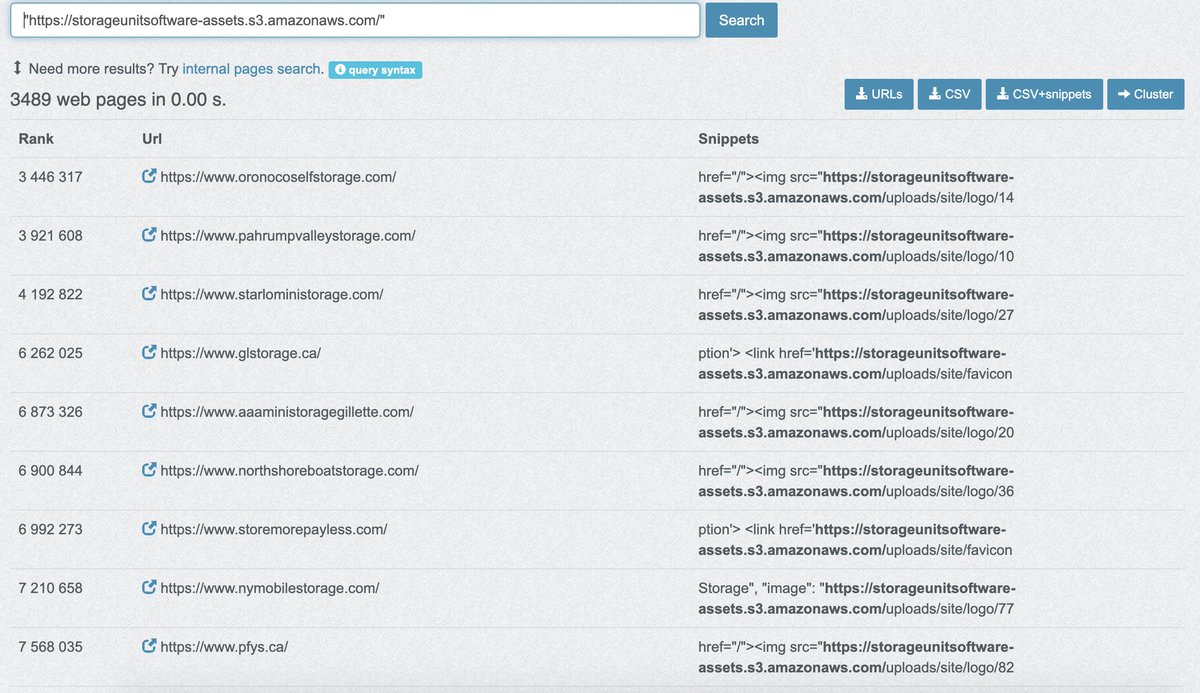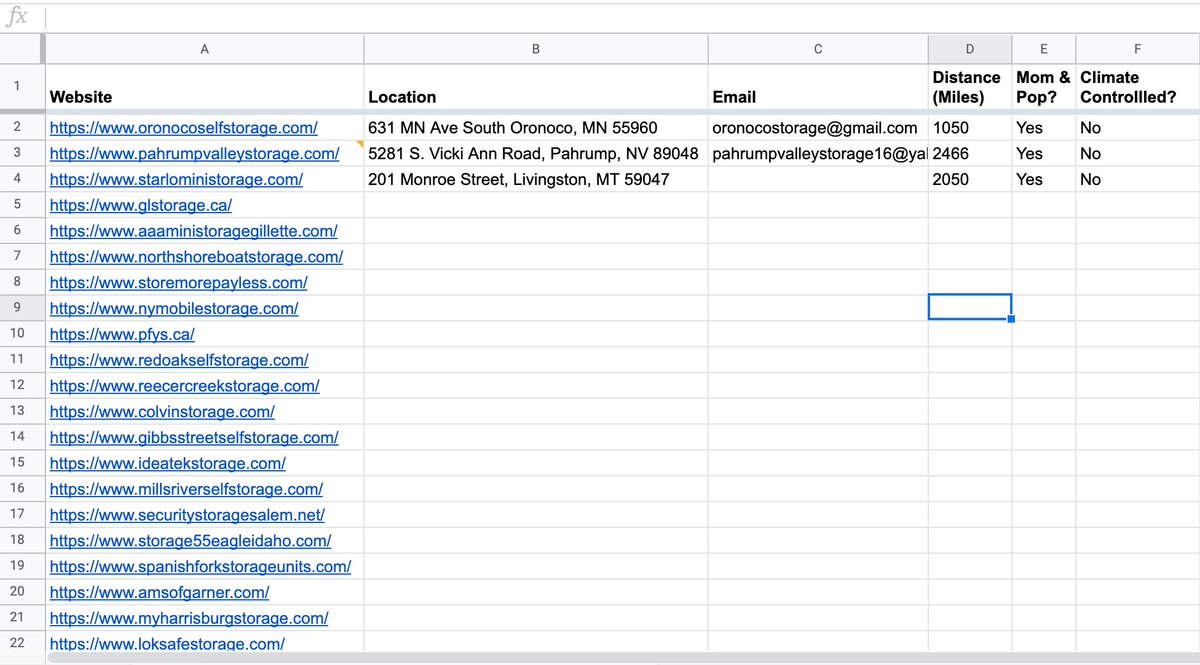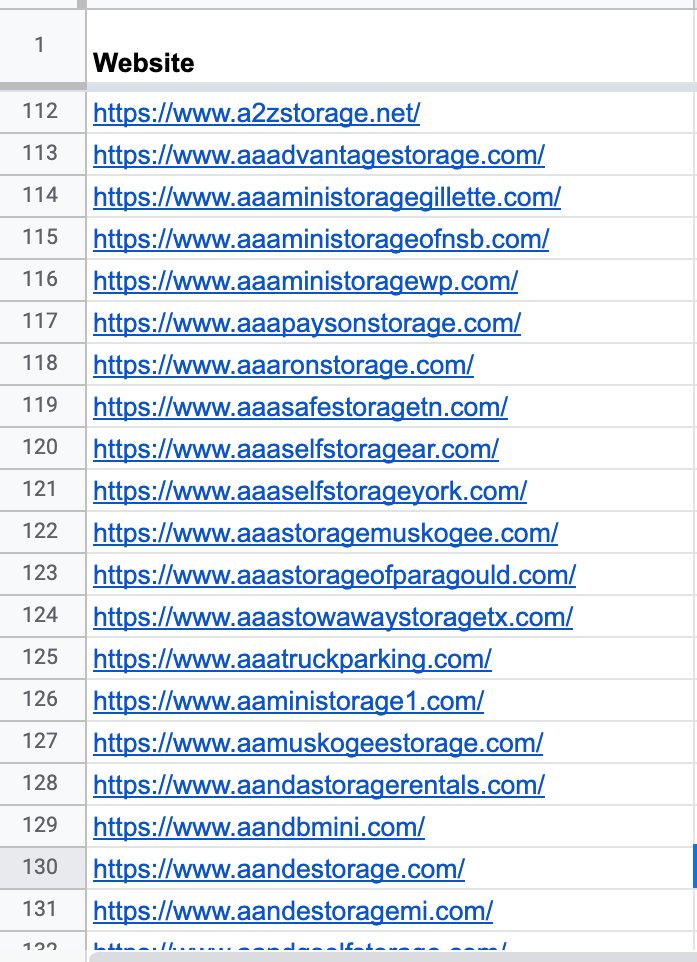
One of my favorite things is finding a way to use internet / marketing/ or code knowledge for non-tech applications.
Ex:
- Looking for self-storage facilities owned by small operators.
- They may not know to list their businesses on GMB or how to distribute their website.
Ex:
- Looking for self-storage facilities owned by small operators.
- They may not know to list their businesses on GMB or how to distribute their website.
- As a result, if you’re just searching “self storage near X” they may or may not show up.
- That doesn’t necessarily mean they don’t have a site.
- So I look up the most common Wix for Self Storage SaaS providers.
- That doesn’t necessarily mean they don’t have a site.
- So I look up the most common Wix for Self Storage SaaS providers.
- View Source on an example client site
- Extract something unique from this software
- Revisiting this list, I fire up publicwww.com
- Extract something unique from this software
- Revisiting this list, I fire up publicwww.com
https://twitter.com/amandaorson/status/1109872577122631680
- Search the code snippet in publicwww… voilà.
A list of many (if not most) of the sites on the web using this company.
Export to CSV
A list of many (if not most) of the sites on the web using this company.
Export to CSV

Next steps:
1. Upload the CSV to Google Sheets
2. Clean the list up with a little RegEx deadhippo.com/2015/12/07/rem…
3. Brand new 3000+ potential lead list
4. Head over to Upwork to find someone to populate the rest.
1. Upload the CSV to Google Sheets
2. Clean the list up with a little RegEx deadhippo.com/2015/12/07/rem…
3. Brand new 3000+ potential lead list
4. Head over to Upwork to find someone to populate the rest.

Another non-RE factoid I happen to know from marketing life:
If you find businesses (in any category) named "123 Plumbing" or "AAA Storage" those are old businesses, and probably older owners.
Pre-internet the Yellow Pages was alphabetical.
1st listed got called first.
If you find businesses (in any category) named "123 Plumbing" or "AAA Storage" those are old businesses, and probably older owners.
Pre-internet the Yellow Pages was alphabetical.
1st listed got called first.

With some quick outsourcing (that clicked on every link and populated email/ city/ state in the doc) the list is now ready to sort, parse, and get to work.
• • •
Missing some Tweet in this thread? You can try to
force a refresh








